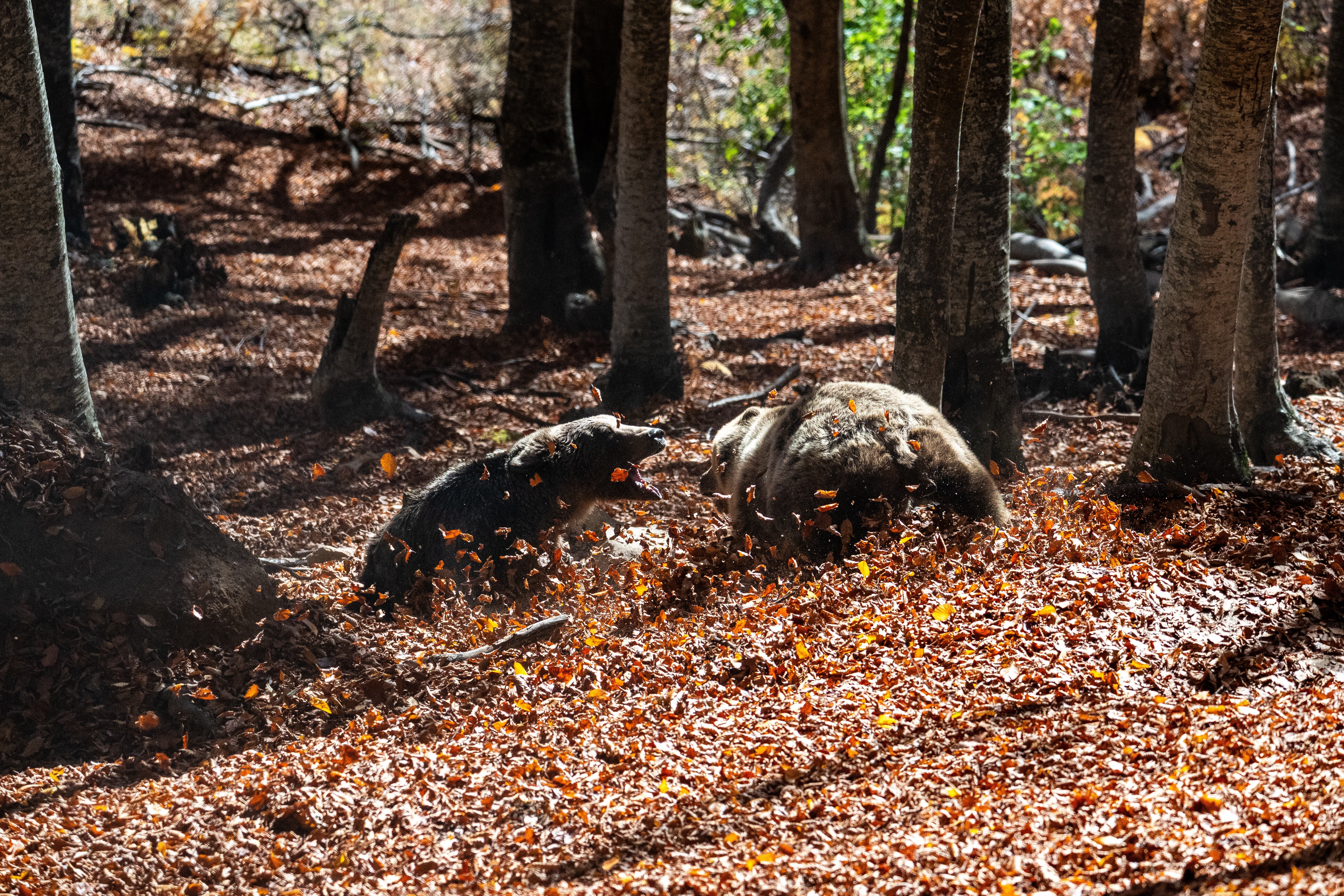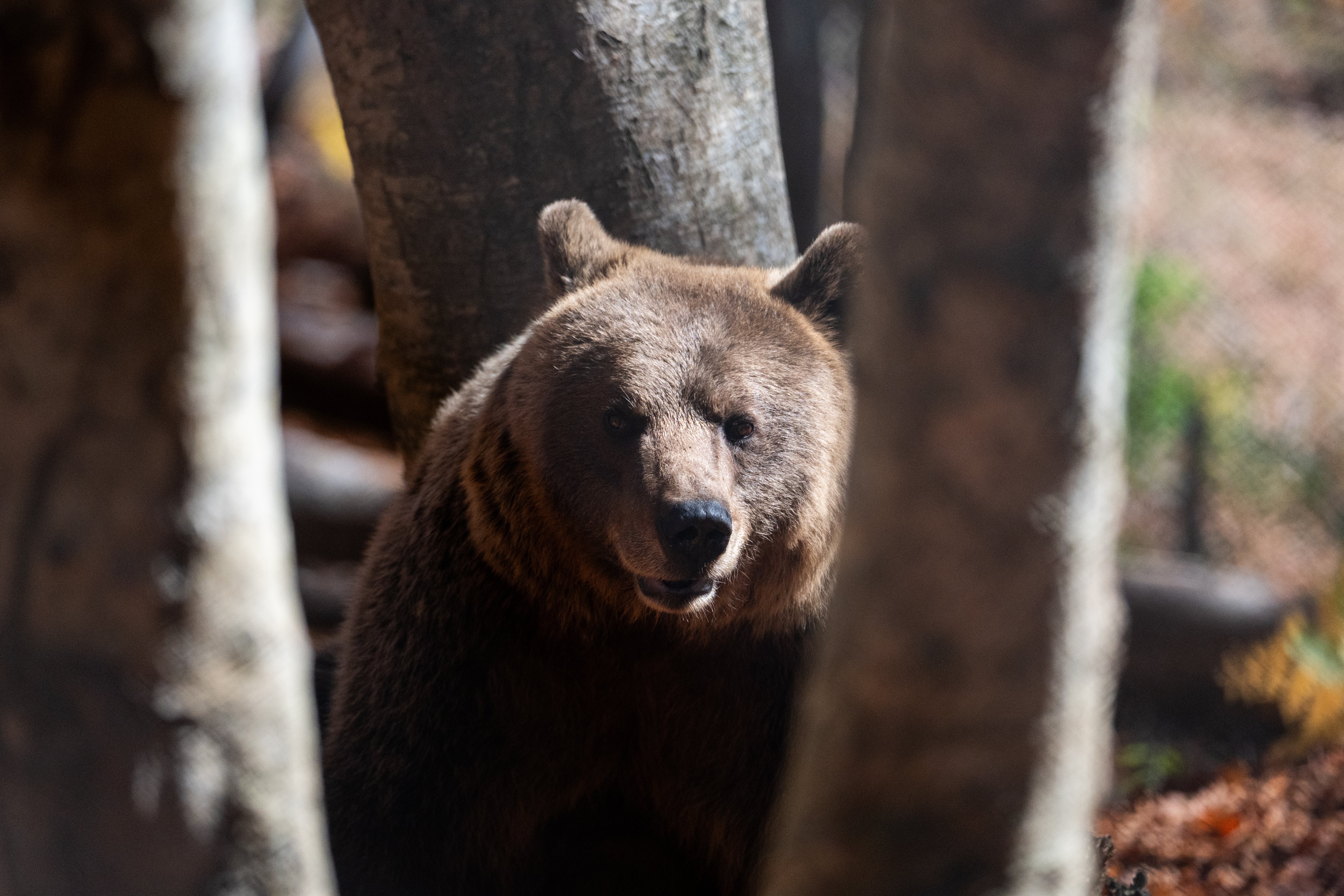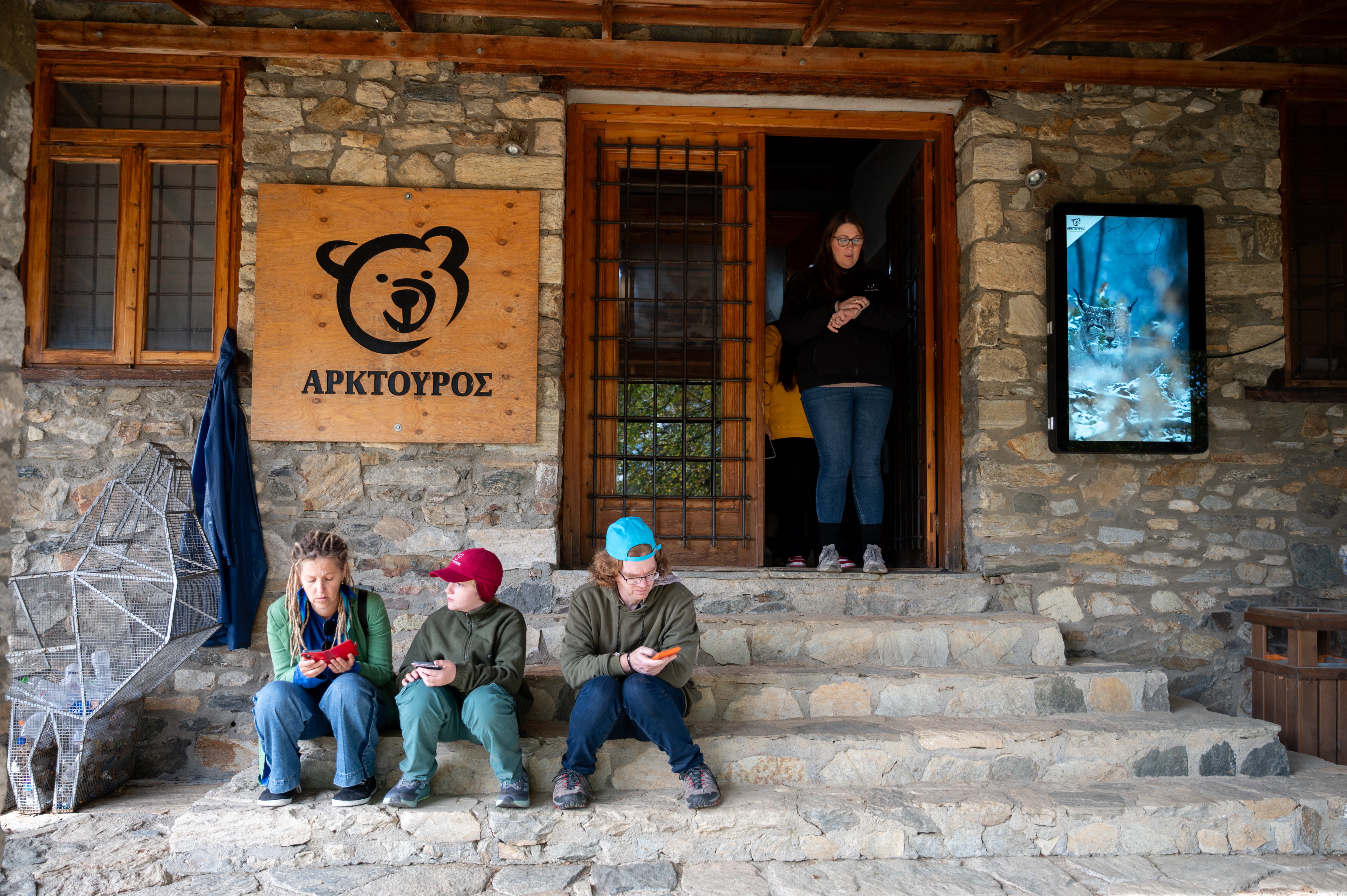- News
- World
- Europe
It’s an issue that isn’t unique to Greece
Costas KantourisFriday 21 November 2025 08:09 GMT open image in galleryTwo brown bears wrestle inside the Arcturos sanctuary in Nymfaio, northern Greece, on Thursday, Oct. 30, 2025. (AP Photo/Giannis Papanikos) (Copyright 2025 The Associated Press. All rights reserved)
open image in galleryTwo brown bears wrestle inside the Arcturos sanctuary in Nymfaio, northern Greece, on Thursday, Oct. 30, 2025. (AP Photo/Giannis Papanikos) (Copyright 2025 The Associated Press. All rights reserved)
On The Ground newsletter: Get a weekly dispatch from our international correspondents
Get a weekly dispatch from our international correspondents
Get a weekly international news dispatch
 Email*SIGN UP
Email*SIGN UPI would like to be emailed about offers, events and updates from The Independent. Read our Privacy notice
A farmer in northwestern Greece was confronted with a shocking sight: three of his sheep mauled to death, their demise unequivocally attributed to a bear. The grim discovery underscores the increasingly frequent presence of these once-rare predators in the region.
Anastasios Kasparidis found large paw prints confirming the attack. "It was a bear, a very big one, and they come often now. I wasn’t the only one, it struck elsewhere too," he recounted, noting another farmer had lost chickens and pigs.
To protect his remaining livestock, Mr Kasparidis moved his small flock into a sheep pen near his house. "Because in the end I wouldn’t have any sheep," he explained. "The bears would eat them all."
Environmentalists have welcomed the rebound of bear and wolf populations in Greece thanks to the protected species designation that banned them being hunted. But some farmers and residents of rural areas say they now fear for their livelihoods and, in some cases, their safety. They are calling for greater protection in a phenomenon playing out elsewhere in Europe, with some arguing conservation has gone too far and pushing to roll back restrictions.
Bears, wolves and boars
Brown bears, Greece’s largest predator, have made a remarkable comeback. Their numbers have increased roughly fourfold since the 1990s, said Dimitris Bakaloudis, a professor at the Aristotle University of Thessaloniki who specializes in wildlife management and conservation.
 open image in galleryA brown bear peers through the trees inside the Arcturos bear sanctuary in Nymfaio, northern Greece, on Thursday, Oct. 30, 2025. (AP Photo/Giannis Papanikos) (Copyright 2025 The Associated Press. All rights reserved)
open image in galleryA brown bear peers through the trees inside the Arcturos bear sanctuary in Nymfaio, northern Greece, on Thursday, Oct. 30, 2025. (AP Photo/Giannis Papanikos) (Copyright 2025 The Associated Press. All rights reserved)Up to an estimated 870 brown bears roam the forests of northern Greece, according to the most recent survey by Arcturos, an environmental organization set up in 1992 that provides a sanctuary for rescued bears and wolves.
And it's not just bears. Wolves also have seen their numbers rise. While wolves could only be found as far south as central Greece in 2010, they have now spread to the outskirts of Athens and into the Peloponnese in southern Greece, Bakaloudis said.
Their recovery has been sustained in part by the also increasing population of wild boars, which is unrelated to conservation efforts. Rather, a combination of a number of factors, including a reduction of hunting, milder winters and cross-breeding with domestic pigs have led them to reproduce at a faster rate, Bakaloudis explained.
Viewed by many as pests that destroy crops, the sight of a dozen or more boars trotting along sidewalks or snuffling through backyards are no longer uncommon in many parts of Greece.
 open image in galleryVisitors sit on the stairs inside the Arcturos bear sanctuary in Nymfaio, northern Greece, on Thursday, Oct. 30, 2025. (AP Photo/Giannis Papanikos) (Copyright 2025 The Associated Press. All rights reserved)
open image in galleryVisitors sit on the stairs inside the Arcturos bear sanctuary in Nymfaio, northern Greece, on Thursday, Oct. 30, 2025. (AP Photo/Giannis Papanikos) (Copyright 2025 The Associated Press. All rights reserved)The larger number of wild animals has also resulted in more contact with humans — the vast majority of whom are unfamiliar with how to behave during an encounter. Lack of familiarity has led to fear in some communities, particularly following a small number of serious incidents this year: a child bitten by a wolf, an elderly man injured by a bear in his yard, a hiker bitten by a bear and another hiker who died after falling into a ravine during a bear encounter.
In Levea, a village of about 660 people surrounded by fields in northwestern Greece, several bear encounters were reported in October, while boars frequently roam through the village, said community president Tzefi Papadopoulou. The bears especially had frightened residents.
“As soon as they heard a dog bark, they were ready to go out with the gun,” she said.
 open image in galleryFarmer Anastasios Kasparidis stands outside his sheep pen with his three dogs in Levea village, northern Greece, on Thursday, Oct. 30, 2025, days after a bear attack killed three of his sheep. (AP Photo/Giannis Papanikos) (Copyright 2025 The Associated Press. All rights reserved)
open image in galleryFarmer Anastasios Kasparidis stands outside his sheep pen with his three dogs in Levea village, northern Greece, on Thursday, Oct. 30, 2025, days after a bear attack killed three of his sheep. (AP Photo/Giannis Papanikos) (Copyright 2025 The Associated Press. All rights reserved)It's similar in the nearby village of Valtonera, 170 kilometers west of Greece’s second largest city, Thessaloniki.
“The village used to be without wild animals. In the past, a wolf would appear once in a while,” said Konstantinos Nikolaidis, community president. Now, wild boars, foxes, bears or wolves roam around or even inside the village, he noted.
“This has caused concern among all residents. It’s now difficult for a person to walk around outside at night,” he said.
The burgeoning wild boar population, meanwhile, has led to calls for the hunting season to be extended.
Giorgos Panagiotidis, deputy mayor of the nearby small town of Amyntaio, said boars had been increasingly encroaching on houses. In May, he asked authorities for hunters to be allowed to shoot boars out of season to tackle the problem.
It’s an issue that isn’t unique to Greece. In a victory of farmers over environmentalists, European Union lawmakers voted in May to reduce protections for wolves across the EU’s 27 member states. The movement even gained support from European Commission President Ursula von der Leyen, whose pony Dolly was killed by a wolf three years ago.
 open image in galleryVisitors sit on the stairs inside the Arcturos bear sanctuary in Nymfaio, northern Greece, on Thursday, Oct. 30, 2025. (AP Photo/Giannis Papanikos) (Copyright 2025 The Associated Press. All rights reserved)
open image in galleryVisitors sit on the stairs inside the Arcturos bear sanctuary in Nymfaio, northern Greece, on Thursday, Oct. 30, 2025. (AP Photo/Giannis Papanikos) (Copyright 2025 The Associated Press. All rights reserved)Experts note it isn't just the larger number of wild animals that has led to encroachment on urban areas. Many factors are at play, they say, from loss of habitat due to wildfires, to noise disturbances from wind turbines and recreational vehicles, and animals emboldened by dwindling human populations in villages.
“There is of course fragmentation of the bears’ habitat, frequently there is drought, there’s a lack of food in the natural environment, there’s a desertification of villages which makes inhabited areas more attractive to bears, so they approach and find food,” said Panos Stefanou, communications officer at Arcturos.
Measures to keep wolves and bears at bay have been developed and approved by scientists, said Bakaloudis, the Thessaloniki university professor, including using lights around property, proper disposal of trash and dead livestock and avoiding feeding strays.
In exceptional circumstances more invasive methods are used, he said, such as in the case of the wolf attack on the child in northern Greece, where authorities decided to capture and remove the animal.
With so many factors contributing to increasing encounters between wild animals and humans, Stefanou cautioned against overly simplistic solutions.
“Killing the animals is not what will solve the problem,” he said.



